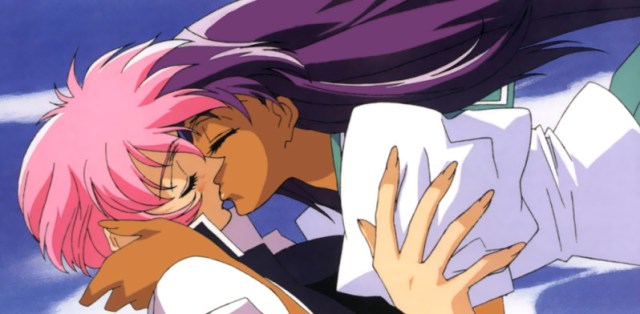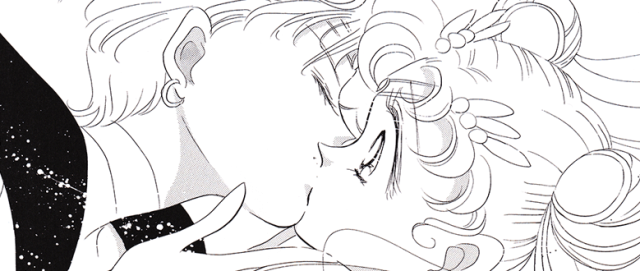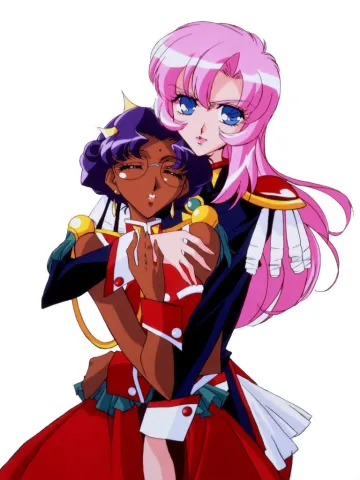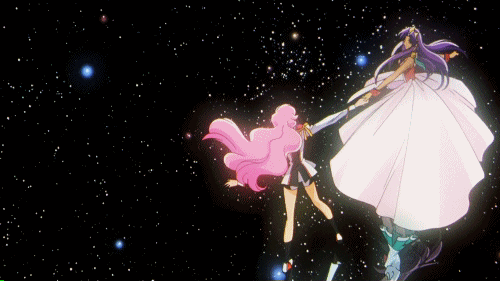What Magical Girls Taught Me About Being Queer
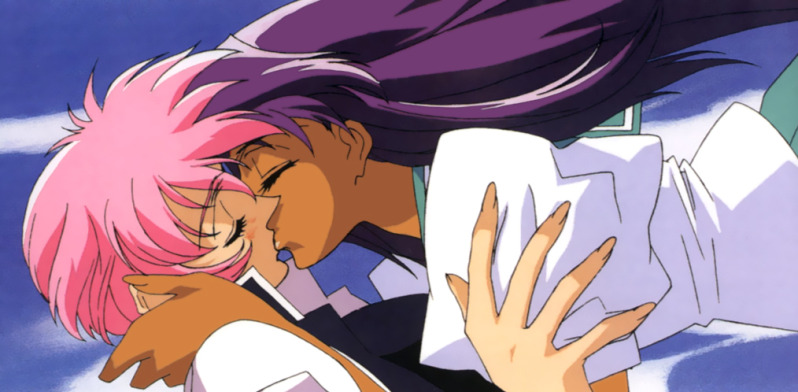
Since I was a kid, I have always loved the magical girl genre. Seeing or reading about characters like Sailor Moon and Taranee Cooke has always been empowering and fun, even if some were problematic. In the past three years, certain magical girl characters have related to me personally by helping me come to terms with my queerness.
In 2013, I was rereading the Sailor Moon manga to distract myself. When I got to the Sailor Moon S arc and saw Sailor Uranus kiss Sailor Moon, I felt something stir inside me. Part of me wanted to be Sailor Moon, but a part of me that was scared and ashamed squelched that desire.
Since I’ve always a hard time making friends with girls, I figured there was no way I could want to kiss one. Never mind the fact that before rereading Sailor Moon, I answered a “Describe your ideal guy” question by describing my ideal girl. Never mind that after seeing Usagi and Hakura kiss, I read fan fiction with them as a pairing and felt the desire to be Sailor Moon get stronger.
While I don’t really ship them, I believe that, at the time, Hakura and Usagi represented a new possibility for me. Even though Usagi has her destined Prince to marry and Hakura already has a girlfriend, these two sharing a kiss showed that who you are attracted to isn’t set in stone. Yet, the scared and ashamed part of me managed to convince myself that if Usagi had to marry her Prince, then I had to be attracted to guys. As a result, I managed to shove my burgeoning feelings for girls down for two years.
Then, in the spring of 2015, I watched Kunihiko Ikuhara’s anime series, Revolutionary Girl Utena, and his film, Adolescence of Utena, for the second time. The first time, I was mind-screwed by both and was too confused by the plot to pay attention to most of the queer stuff going on. This time, I managed to understand what was going on because I had developed a mind for symbolism & allegorical analysis.
As with Salior Moon, I found myself identifying with queer female characters and moments. In this case, it was Utena and Anthy’s relationship and Anthy’s point of view. In the anime series, Utena and Anthy’s feelings for each other are subtextual, yet that didn’t stop me from wanting to be Anthy when the series ended. To me, Anthy and Utena’s queer subtext was a part of the world Utena needed to revolutionize, a world that confined men and women to certain roles and expectations and kept them tied to the past.
By the end of the series, Utena has made a powerful impact on Anthy’s life, an impact I believe carries over to the movie Adolescence of Utena. When I finished the movie the second time, I felt that I had watched a sequel to the anime series. In the film, Anthy is the one doing the revolutionizing by changing Utena’s life as well as her own.
Unlike in the anime series, the film allowed the director to explicitly portray Utena and Anthy’s romantic and sexual attraction. In what is one of the most gorgeous scenes in animation, Utena and Anthy dance in a flooded rose garden under a starry night sky that is reflected around them. Together, this scene and my appreciation of Utena and Anthy’s overall relationship gave me the courage to come out to myself as a gender diverse, female-identified lesbian in the summer of 2015.
After coming out to myself, I felt a lot of different feelings including happiness, fear, anxiety, and sadness. I felt happy that I had come out to myself but feared coming out to family members. I was anxious, because I had come out at age twenty-four and didn’t know anyone personally who was queer. Finally, I felt sad, because I realized that if I had come out before graduating college in May, I would’ve had an LGBTQ campus community to support me.
As time passed, I successfully came out to a few family members and found some solace in queer books, musicians, and films. However, I needed something that showed a queer person who was still getting used to their identity and learning to be proud of it. Then came the return of the cartoon series Steven Universe and the episode “The Answer.”
Prior to seeing this episode, I had already loved Garnet, Ruby, and Sapphire, but I didn’t realize how relatable they could be. Garnet’s conversation with Rose Quartz matched the aftermath of coming out to myself and my current mixed feelings. While I’m still learning to be proud of my queerness, magical girls have gradually taught me not to question things so much. I am already the answer, even if I am still learning who I am.
Latonya Pennington is a contributing writer for Black Girl Nerds and Afropunk. In the past, she has also done pieces for Atlanta Blackstar, For Harriet, and Buzzfeed. She lives somewhere in the southern United States and spends way too much time listening to music, watching shows online, and reading. Find her on Twitter.
—Please make note of The Mary Sue’s general comment policy.—
Do you follow The Mary Sue on Twitter, Facebook, Tumblr, Pinterest, & Google +?
Have a tip we should know? [email protected]
